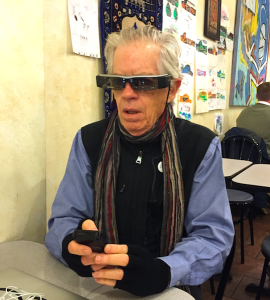Most of the things we worry about never happen. Most of us know that to be (statistically) true, but it doesn’t help much. Why not? My theory: Once the event/outcome/whatever about which we were worried doesn’t come to pass, we forget about it. All of the hours/days/weeks/months of anxiety are forgotten. And we move on to the next awful thing that might befall us.
Introducing: Anxiety Log. The smartphone app you use to track and log all of your fears and anxieties. It works like this:
When you become aware that you’re worried or anxious (very hard to do, I will admit), you take out your phone and scroll through your list of existing Worries (or enter a new one). Then you enter your best estimate of how long this most recent thought stream has been going on. Five minutes? Ten?
If the event about which you’re fretting has a date/time (lab results; performance review; American Idol tryout), you enter that in the app as well and notifies you on that date: “You spent 14 hours and 26 minutes worrying about this event. How did it turn out?” Possible answers: a) No big deal b) Not as bad as I expected c) As bad as I feared. With a notes field for details if you so desire.
You can configure the app to give you frequent updates (daily, weekly, monthly): “You worried a total four hours in the past week.” Maybe with a little chart or graph showing how much time was given to each event.
If you are one of the lucky few that never worry about anything (lucky you), this seems pretty foolish. We know that. You’ve told us that many, many times. And while we all know that “most of the things we worry about never happen,” we don’t know just how much of our lives are spent in needless anxiety. Until now.
If this app — or something like it — is already out there, send me a link. If not and you create it and make a fortune, you’re welcome. Where do I download?
 I’d pay $1,000 for really smart eyeglasses. People who have LASIK surgery tend to rave about how it changed their lives for the better. Fortunately I’ve been blessed with good vision because I just don’t think I could let someone cut on my eyes unless there was no option. These surgical (?) techniques will — I assume — get better and better. That’s a good but I’m counting on eye glasses getting smarter.
I’d pay $1,000 for really smart eyeglasses. People who have LASIK surgery tend to rave about how it changed their lives for the better. Fortunately I’ve been blessed with good vision because I just don’t think I could let someone cut on my eyes unless there was no option. These surgical (?) techniques will — I assume — get better and better. That’s a good but I’m counting on eye glasses getting smarter.